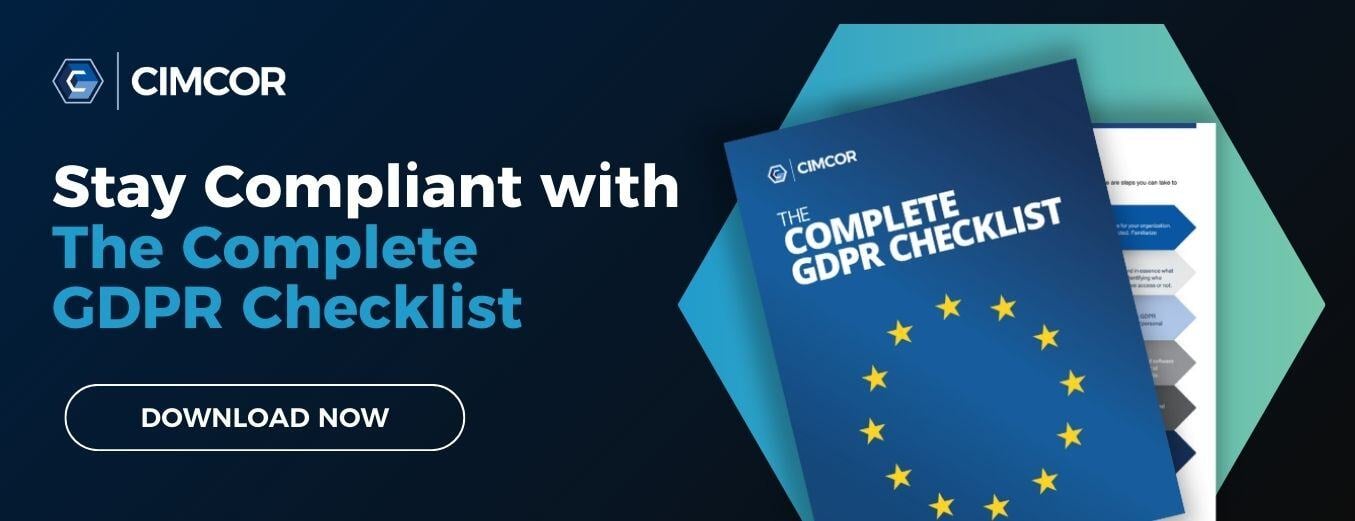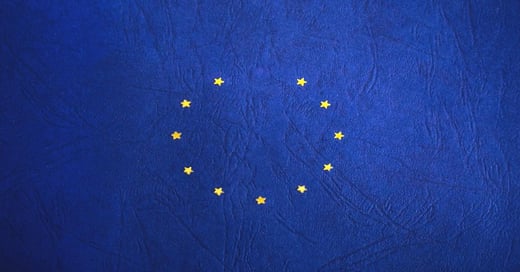General Data Protection Regulation (GDPR) requires additional steps that data processors and data controllers must take to protect personal data and disclose any data security breach to the public. GDPR regulators can impose large monetary fines for those in non-compliance. Additional penalties that can occur may not be monetary but can carry a significant consequence.
Consequences of non-compliance
As defined in the GDPR, personal data is any information that relates to a natural person—or “Data Subject”—that can be used to indirectly or directly identify that person. As our modern identity becomes increasingly intertwined with cloud-based and online information, the protection of personal data is becoming a fundamental right.
Though many organizations may wonder about the driving force behind the regulation, an updated regulation is needed, as the Data Protection Directive was enacted in 1995. To reminisce about the state of technology back then, the year 1995 brought the creation of Amazon.com, DVDs, and Java. To say the previous directive is outdated is an understatement.
Non-compliance with articles defined in the GDPR can be disastrous for businesses regardless of whether they are physically located within the EU or not.
Monetary Concerns
One of the major consequences of non-compliance is the fine placed on organizations that fail to follow the regulation.
The factors, which define how a fine is calculated, are outlined in Article 58 of the GDPR and include:
- Whether an infringement occurred due to negligence
- Whether a data processor or data controller attempted to alleviate the damage or breach
- If the organization had prior personal data infringements
- How a regulator finds out about an infringement
- How many people were affected by the data breach
When GDPR regulators are alerted to a data breach or non-compliance, organizations can face fines of up to 20 million Euros or 4% of global annual revenue from the previous year.
Business Concerns
Upon notification of non-compliance, the EU and the GDPR ensure that all company information and data breach information will be made publicly available, resulting in a potential loss of reputation for the business itself.
If fined to the highest degree, a company may run into financial issues which can lead to a variety of undesired results, such as bankruptcy or major organizational downsizing.
Additionally, the misuse of breached data can have long-term, negative implications. Those affected by the 2017 Equifax breach can attest to that!. Many of the outcomes from this breach are still unknown, and may not fully be understood for years to come.
Compliance Concerns
Although complete compliance with the GDPR may sound difficult, creating the technical and organizational changes needed for efficient and effective results is possible.
Communicate the Importance of GDPR
Even if your organization cannot currently meet the standards for GDPR compliance, the first step is familiarizing high-level organizational leaders with the GDPR itself. For additional reading, try 5 Things to Know About GDPR Compliance or General Data Protection Regulation (GDPR) Definitions to Know.
Put Effective Systems in Place to Ensure Compliance
In today's business era, it is vital for organizations to have the correct strategies and processes in place to access personally identifiable information (PII). In Article 25 of the GDPR, the discussion of the responsibility of the controller focuses on data protection by design.
The controller must implement appropriate technical and organizational measures in an effective manner and integrate the necessary safeguards into the processing in order to meet the requirements of this Regulation and protect the rights of data subjects.
The approach when implementing privacy by design should take into account the cost of implementation, the scope, nature, and context of processing, as well as the risks regarding the processing of that data.
Secure Processing
In Article 32, secure processing requires that organizations take measures that ensure an appropriate level of data security based on risk. Organizations will need to ensure the confidentiality, and integrity of processing systems. Additionally, a process for regularly testing, assessing, and evaluating the effectiveness of technical and organizational measures for ensuring the security of the processing is required.
Comprehensive Policies
Any business operating under the GDPR should have in-depth policies that help to ensure compliance. These policies outline how to notify the appropriate parties upon the occurrence of a data breach. As we outlined in 13 Reasons to Update Your Data Security Policy, policies can include but are not limited to:
- Supportive Technology
- Vulnerability management
- Automated Threat Intelligence
- Data Security
- Security Awareness
- Response Plan
The tasks of the Data Protection Officer (DPO), as outlined in Article 39, can assist organizations with rules, regulations, common practices, and data protection matters.
Invest in Compliance Software
To ensure compliance with the GDPR, companies should consider implementing resources like compliance and security software. File integrity monitoring (FIM) software, as part of a comprehensive security strategy, is critical in alerting DPOs and other cybersecurity professionals within an organization to any changes to files or system changes immediately. These unexpected changes are often the first step in a breach that may affect the privacy data.
Implementing the right processes and strategies to comply fully with the GDPR will take time and company resources. However, with software like CimTrak, you can begin to trust that your infrastructure is in the state it is supposed to be in. To learn more about how CimTrak helps with GDPR, download our guide to GDPR compliance today.
Tags:
News
March 16, 2018




